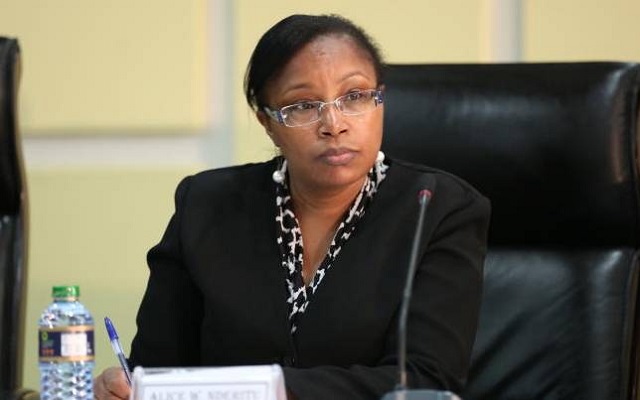
Geneva, Switzerland | Xinhua | The UN secretary-general’s special adviser on genocide prevention, Alice Wairimu Nderitu, on Monday warned of the risk of commission of atrocity crimes in Ethiopia amid an escalation of the military conflict in the north.
Nderitu is gravely concerned at the deterioration of the situation in Ethiopia, where escalation of violence, increased incidence of ethnically and religiously motivated hate speech, displacement of populations and destruction of property display serious indicators of risk of commission of atrocity crimes.
“It is essential that all parties take serious and urgent steps to de-escalate the situation and take active measures to mitigate the risk of commission of widespread and systematic violence, including along ethnic lines. This risk is real and must be addressed as a matter of urgency,” she said.
The decentralized nature of the country and the strengthening of ethnic-based allegiances, especially at the community level, enhances the possibility of such violence, she warned.
Further deterioration can have very serious consequences, not only for the future of the country but also for the overall region, including cross-border conflicts.
Therefore, the special adviser said, it is vital that regional actors take any possible initiative to strengthen dialogue and put an end to the armed conflict, including by supporting ongoing regional mediation efforts.
The international community should remain engaged in supporting such efforts and contributing to open further options for peace, including the African Union’s Peace and Security Council, and the Intergovernmental Authority on Development, both of which have a key role to play, she said.
Only through genuine and inclusive dialogue can Ethiopians address the root causes of their divergences and preserve their country’s unity and stability. This includes at the community level, where strategies to reduce conflict, division, distrust and hostility are especially paramount, she said.
“Unfortunately, dynamics conducive to legitimizing violence for political and ethnic nationalism purposes precede the current conflict, and the current conflict is likely to build upon this negative legacy. This cycle needs to be broken for sustainable peace to emerge.”
She noted that current developments occur in a context of history of inter-ethnic conflict; ongoing human rights violations and absence of accountability; increased politicization of identity and past grievances; increased inflammatory rhetoric, propaganda campaigns or hate speech; sexual and gender-based violence and the creation of, or increased support to militia or paramilitary groups.
The country continues to witness inter-group tensions and patterns of discrimination against specific groups, including ethnic profiling, incitement to violence, and allegations of systematic attacks against specific populations, she added.
“These all constitute risk factors for atrocity crimes. Given their potential impact in triggering large-scale violence, allegations of hate speech by ethnic and religious leaders are particularly concerning,” she warned.
Nderitu also acknowledged the serious violations by all parties between November 2020 and August 2021 documented in a report of the Ethiopian Human Rights Commission and the Office of the UN High Commissioner for Human Rights.
She joined UN High Commissioner for Human Rights Michelle Bachelet in urging national and international actors to take steps for accountability for the serious violations documented in the period covered by the report, as well as for the alleged violations committed since.
The special adviser also called on all non-state actors in a position of leverage, including tech and social media companies, to do their utmost to contribute to mitigating risks of further deterioration.
She also called on religious leaders and actors to contribute to counter the seeds of division and bring communities together.
*****
Xinhua
 The Independent Uganda: You get the Truth we Pay the Price
The Independent Uganda: You get the Truth we Pay the Price


